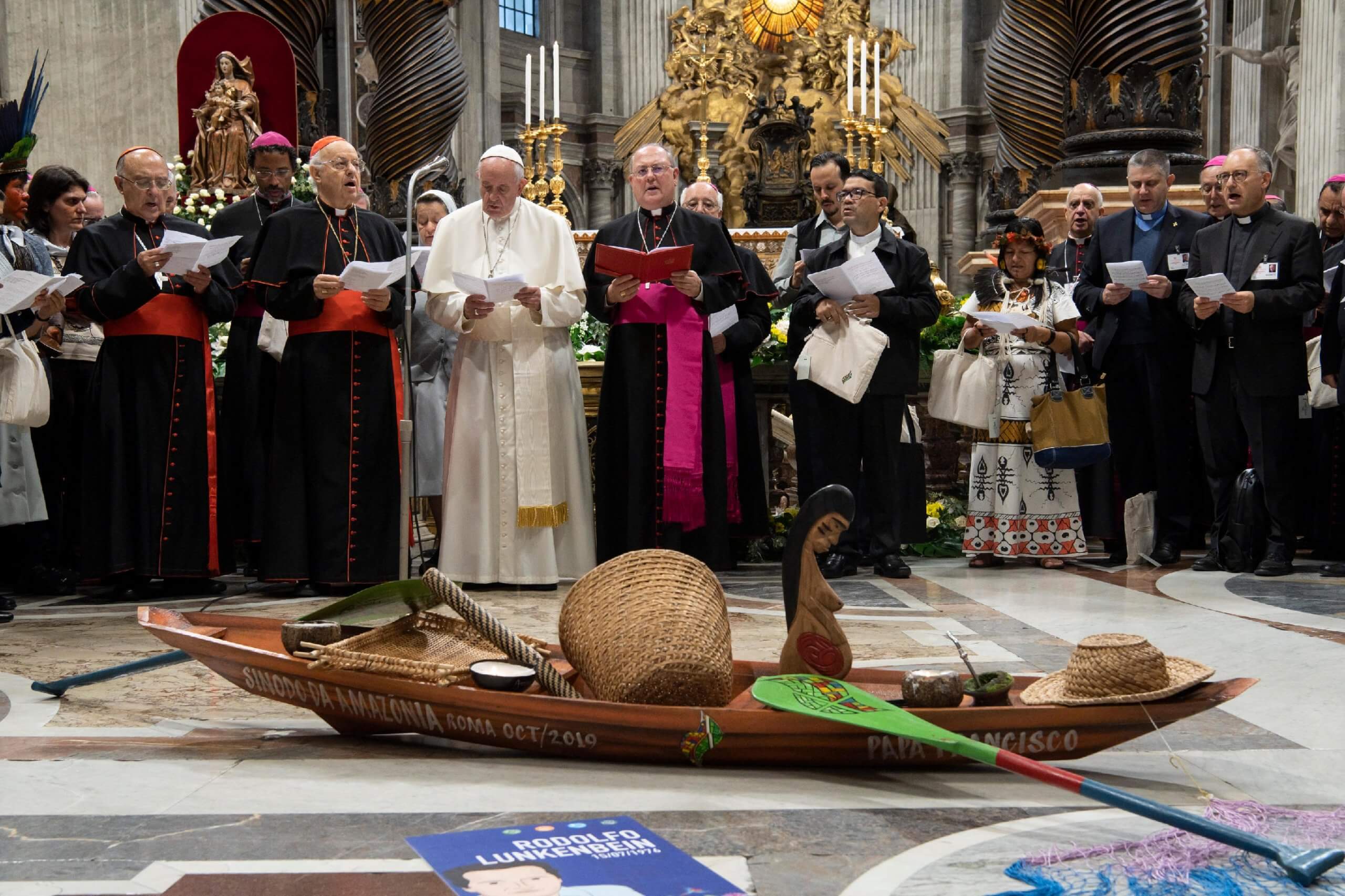Today’s distorted theology, rooted in Modernism, the heresy of all heresies according to Pius X, is primarily an inductive theology. It does not proceed from deducing truths from the principles given us from above, from Divine Revelation, as traditional theology has always been done. This “theology” stems from a reflection upon the praxis of man’s life, how he lives. For that reason, there are no more certain and valid truths for everyone. There is an absolute value given to experiences which have become the basis of forming today’s theology. As a Modernist professor once told me: “Christianity is the fruit of the subjective experience of Jesus Christ.” Whatever that means.
Because of this mentality, prevalent among the clergy and hierarchy of the Church, we hear homilies, for the most part, that really don’t emit a pure Catholic spirit. I mean simply that Catholic truths are not talked about from the pulpit in mainstream Catholic churches (there is an obvious difference between TLM parishes and NO parishes of course). What is kind of scary is that the preaching that is heard can really be gladly heard in a service of any Christian sect. Many times, some homilies can be done in non-Christian religious communities without any problems. Now speaking in very general truths is not a bad thing of course, but if most of the time there is nothing specifically Catholic in preaching, what are we nourishing our people with?
The reason for this is that today’s theology is born from the praxis of the community, and, since there are many communities, there are many theologies which are all valid. Theology is reduced to the mere Christian reflection of our experiences. We don’t need content, that is, dogmas and creeds, we just need to be morally good. This is essentially the Enlightenment reductionist view of religion.
Today’s theology culminates in the sacralization of the natural which is also known as modern-day paganism; this is due precisely because the supernatural is diminished. With inductive theology at root, we are falling into the ancient personalization and even sacralization of the natural world. It was orthodox Christianity and this alone, with its true notion of deductive theology, that did away with the pagan mentality of supernaturalizing the natural, which in the end, brought about the flourishing of both theology and the sciences.
For that reason, the decline of true Christianity brings about a return to paganism and the occult, as we are sadly seeing today. When theology loses focus on the mystery of the supernatural, automatically man seeks the supernatural in the merely natural, divinizing nature. It is simply mathematical. Man needs the mystery one way or another. So the world will be divinized if theology is not divinized, that is, not from above (deductive).
Unfortunately Pope Francis advocates this paganist view. He constantly pushes for “ecological justice” and even brought a statue of the Pachamama, the Incan goddess of fertility, into Saint Peter’s Basilica, processed by Cardinals of the Church. This was after there was a cult-like service in the Vatican gardens in honor of the Pachamama.
The only concrete response here is for us to turn to the Most Holy Eucharist, the answer to all our problems, especially to the growing confusion in the Church. This is actually a quite practical remedy. Saint Thomas taught—which the Modernists also like in their distorted way—that God is present everywhere by His essence, power, and presence. Yet this needs a little qualifying and the Most Blessed Sacrament is the perfect qualifier. It is only in the Eucharist that Christ is physically and substantially present, a presence par excellence. In us God is essentially present by His Divine Grace. But only in Christ and the consecrated host, is God’s presence unique and truly substantial.

Only turning to the Eucharist and adoring it can the Church be healed, precisely because the correction notion of theology, as a deductive science will once again flourish. True devotion can only be founded about the doctrines of our Faith (which are revealed from above), and the Dogma of the Most Blessed Sacrament clearly is front and center.
One time, when visiting Saint Bonaventure, Saint Thomas asked him from where he had learned his profound mystical theology (both Saints were colleagues and academics at the University of Paris in the 13th century). Saint Bonaventure simply pointed to a kneeler and Saint Thomas understood that it was his adoration of our Lord in the Blessed Sacrament.
Photo: Vatican City – October 7, 2019. Pope Francis led the opening procession of the Special Assembly of the Synod of Bishops for the Pan-Amazon Region on the theme “New ways for the Church and for an integral ecology” from St. Peter’s Basilica to the Synod Hall where he led the opening prayer, Oct. 7, 2019. Vatican Media/CNA.


